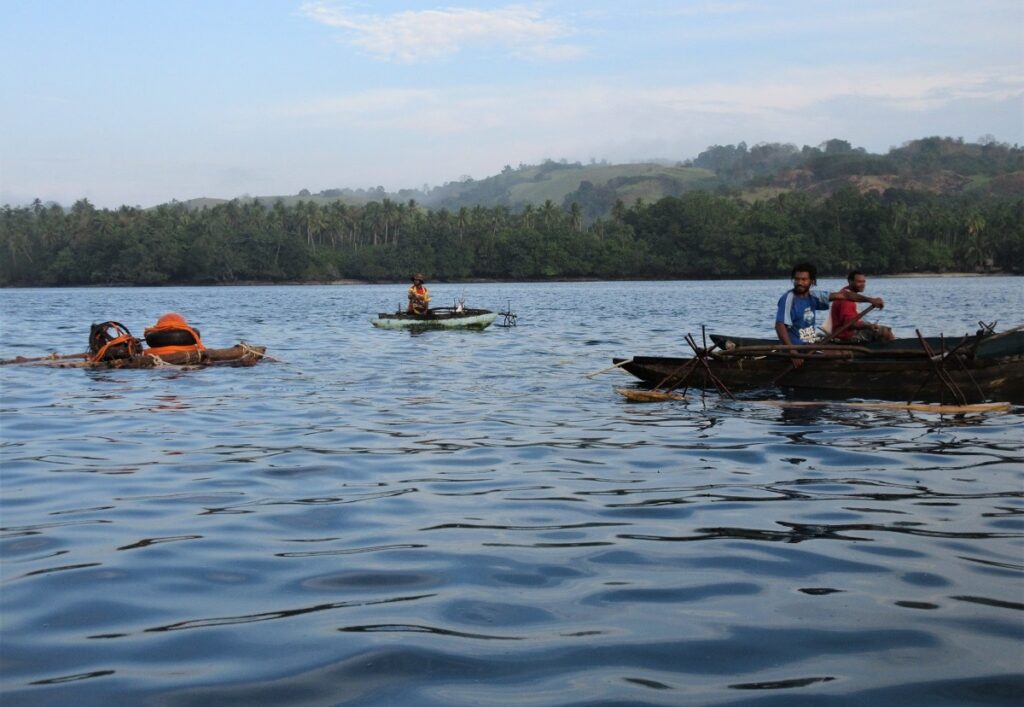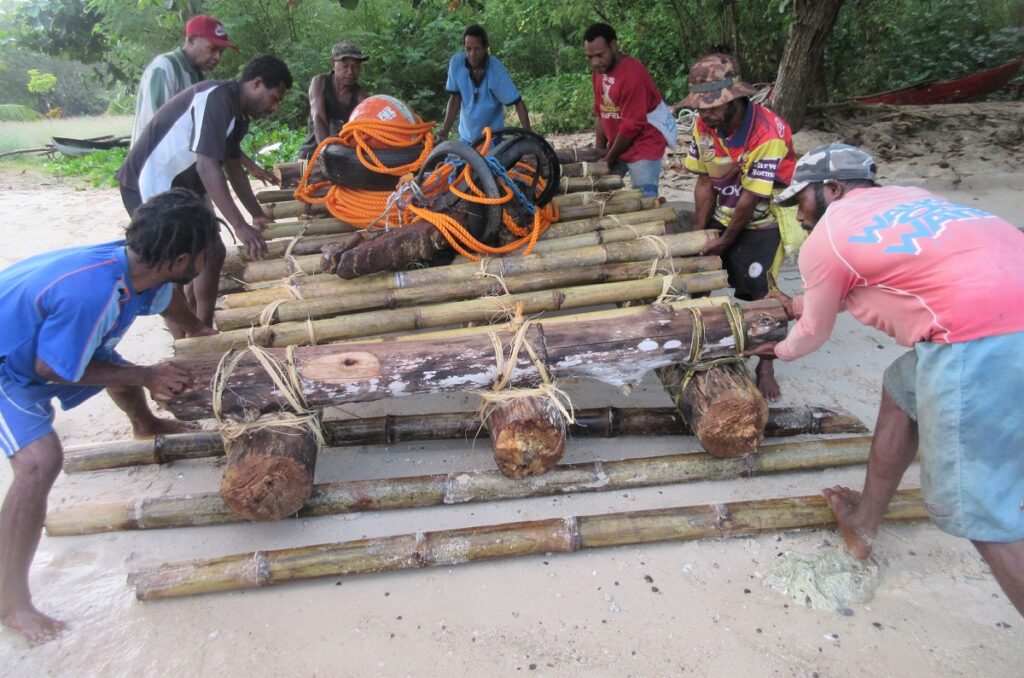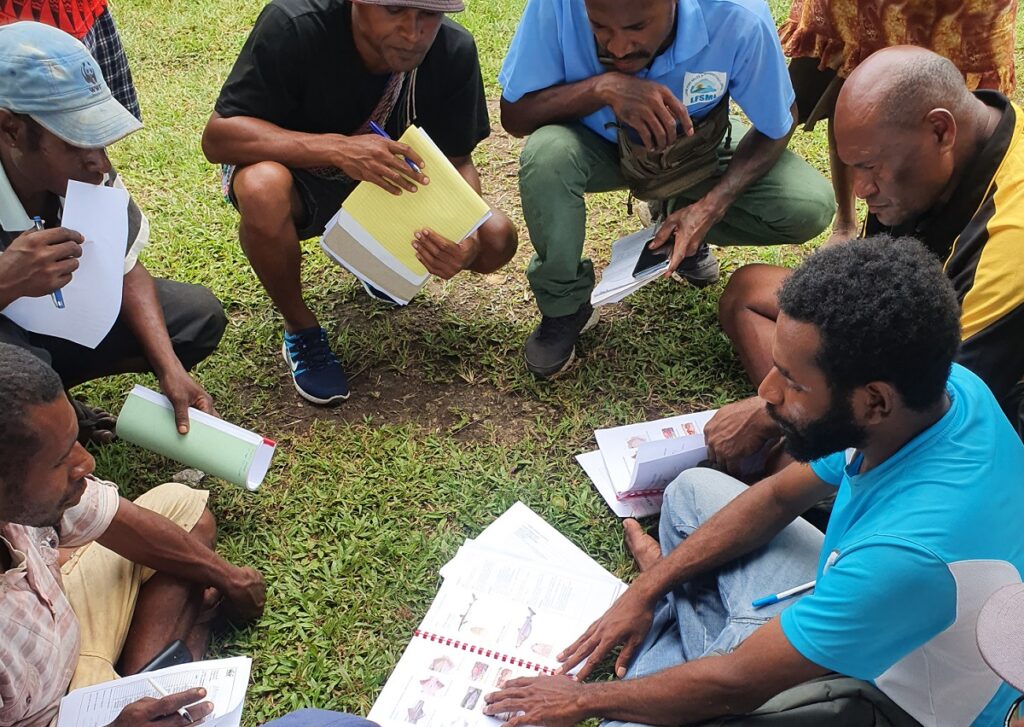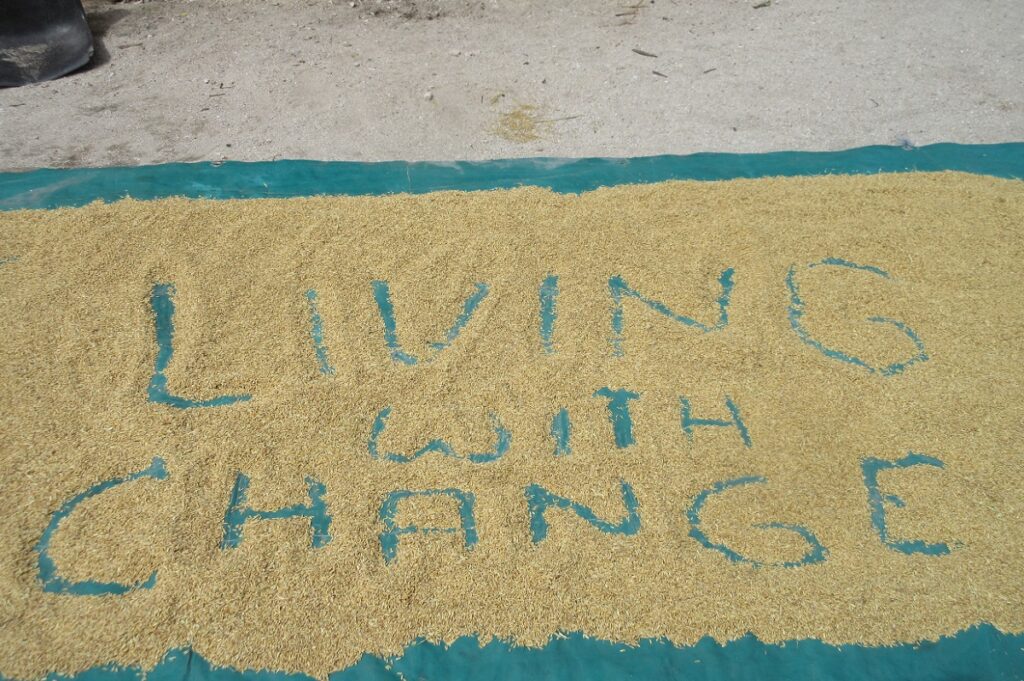“People talk about leaving a better planet for our children, but we need to leave better informed children for our planet.”
OCEAN WITNESS JACK SAGUMAI SHARES HIS STORY.
Jack Sagumai studied marine biology and made it his life’s purpose to restore the ocean’s health. He grew up in a coastal community in Papua New Guinea and now works with WWF and community members to collect scientific data on sharks and rays. According to Jack, most people in his country no longer care about the ocean the way their ancestors did. This has to change: “It is important that people know how to fish sustainably, learn about the threats to marine biodiversity and are aware about the impact of human activities.”
What was it like to grow up by the sea?
I grew up near the beach, where I went swimming, fishing and diving with my friends at a very young age. Once, we saw dolphins near the shore and we ran along the beach while singing in the Manam Motu language: “Dolphins, dolphins: throw your babies out of the water so we can see them.” We were amazed when the baby dolphins indeed jumped out of the water! It was a beautiful moment that I will never forget.
Growing up, I learned that the ocean was the supplier of almost all of our needs, but also a dangerous place. We have to be careful, but going out there is inevitable: we rely on seafood, especially fish is a main ingredient of our diet. The ocean also brings us seeds that grow into new trees and logs that serve as firewood or timber to build houses. We use offshore seawater to create “makasi,” a drink that people – especially men – consume to detox, it makes them look younger.
“In the old days, traditional beliefs and cultural practices ensured a sustainable use of resources and people respected the ocean.”
Jack

What has changed since you were a child?
In the old days, traditional beliefs and cultural practices ensured a sustainable use of resources and people respected the ocean. There were fewer people and they consumed less; most of them were living a simple lifestyle. Now, money is more important in the communities and the area’s population has increased, creating a negative impact on marine life. The demand for products that are already over exploited, such as sea cucumber, is growing.
More people means more food. It is not easy for the community members to feed their families: they take whatever size fish they can catch to put food on the table. I have seen photos of endangered leatherback turtles and sharks being killed for food by communities in my area. People sometimes even eat dolphins and dugongs – both rarely seen near the shores – in order to survive.
Jack
“Papua New Guinea, located in the famous Coral Triangle, is a marine biodiversity hotspot and new species are still being discovered in the region.”
Papua New Guinea, located in the famous Coral Triangle, is a marine biodiversity hotspot and new species are still being discovered in the region. Even though education levels are increasing, many people still lack the knowledge to be able to realise what is happening to the ocean. Some people simply see the ocean as the supplier of their food and a place to dispose of their garbage.


But education levels are increasing in Papua New Guinea and there is a growing awareness about the sustainable use of resources. NGOs like WWF are integrating conservation with community development to make solutions sustainable and use technology to minimise the exploitation of coral reefs. Hopefully, the communities engaged in the programme will inspire surrounding communities so they will replicate these initiatives.
Why is it important to you to restore the ocean’s health?
My motivation to study biology and conservation was to educate my people about a sustainable use of our resources. It is important that coastal communities know how to fish sustainably and be aware about the impact of human activities. People talk about leaving a better planet for our children, but we need to leave better informed children for our planet.
“Sharks and rays worldwide are facing the risk of extinction due to habitat degradation and overexploitation.”
Jack
Sharks and rays worldwide are facing the risk of extinction due to habitat degradation and overexploitation. I work with WWF-Pacific and communities to collect data on sharks and rays as bycatch in my home region. We identify catches and conducted surveys to assess the local fisheries possible threats, and train community members to identify shark and ray species, take photographs and create databases. The data collection allowed us to identify an endemic shark species that was believed to be extinct: the sailback houndshark (Gogolia filewoodi). Hopefully, our report will be used to update the protection status of threatened sharks and rays in Madang Province and to advocate for community conservation areas.

What challenges did you encounter working with coastal communities and what solutions did you develop?
With 85% of its population living in rural areas and limited communications infrastructure, information in Papua New Guinea can travel slowly. Many communities are unaware of regulations and the motivations behind government policies. The government establishes marine protected areas (MPAs) as a strategy to conserve natural resources and NGOs work with coastal communities on their implementation. Yet, it is a challenge to find the resources to effectively manage protected areas. So, species in these areas are increasingly threatened.
Papua New Guinea, a country that is rich in natural resources, has signed international treaties and developed beautifully written legislations. Turning the words into action is a struggle. The communities want what people everywhere want: the opportunity to earn a living and have nice things.
While working with the community members, I explain why we collect data, the threats sharks and rays face because of human activities, the importance of healthy ecosystems and how a sustainable use of marine resources would benefit their communities in the long term. I hope that they will share this knowledge in their communities.
“Coastal communities should know that their traditional practices, like taboo areas where fishing is not allowed, are the basis of today’s MPAs.”
Jack

How can you bring the local solutions to scale?
Sharing information is an important first step. Coastal communities should know that their traditional practices, like taboo areas where fishing is not allowed, are the basis of today’s MPAs. The benefits of protection contribute to long-term economic prosperity.
The community facilitator model is an effective way to get community members involved in data collection and science in their own backyards. I would like to conduct further studies on species abundance and the spawning potential of sharks and rays with the communities. High-quality data collection supports science-based decision making.
“The ocean is not just a supplier of our needs: she is alive and hurts when we harm her and flourishes when we respect her.”
Jack
As an Ocean Witness, what final message would you like to share?
It is devastating to witness the negative changes in the ocean knowing it is impossible to stop these changes overnight. The ocean is not just a supplier of our needs: she is alive and hurts when we harm her and flourishes when we respect her. I want to see the ocean thriving again, full of marine life in healthy ecosystems that can sustain our livelihoods. It is my life purpose to restore and protect the ocean, one step at the time. Many small things make a big difference, so do your part in restoring nature’s balance. The time is now.